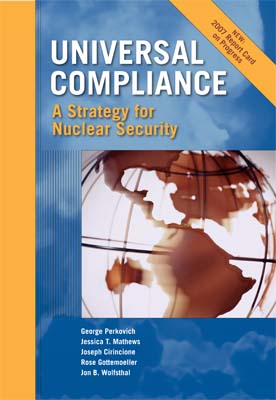"By far the most comprehensive, the most creative, the most useful analysis and prescription I have ever seen…superb."
—Robert Gallucci, Dean, Georgetown University, School of Foreign Service
A team of leading nonproliferation experts offers a blueprint for rethinking the international nonproliferation regime. They offer a fresh approach to deal with states and terrorists, nuclear weapons, and fissile materials through a twenty-step, priority action agenda.
Starting with the premise that the United States cannot solve the nuclear proliferation challenge alone, the authors consulted with experts and officials in the United States and twenty countries across Europe, Asia, the Middle East, the former Soviet states, and Russia. The final report carefully captures the varying national interests driving nonproliferation policies—critical knowledge if the United States’ strategy is to win international support.
This new edition surveys the policies pursued by the U.S. and other governments over the past two years and compares them with Universal Compliance’s priority action agenda. New material also explores how the U.S.-India nuclear deal, the unresolved Iranian crisis, the North Korean nuclear test, and other developments challenge the future of the nonproliferation regime.
Click on the links above for full text and the 2007 Report Card on Progress or the links to the right for specific sections.
About the Authors
George Perkovich is vice president for studies at the Carnegie Endowment for International Peace. Jessica T. Mathewsis president of the Carnegie Endowment for International Peace. Joseph Cirincione is a senior fellow and director for nuclear policy at the Center for American Progress and formerly director for nonproliferation at the Carnegie Endowment. Rose Gottemoeller is director of Carnegie Moscow Center. Jon B. Wolfsthal is senior fellow with the Center for Strategic Studies' International Security Program and formerly deputy director for nonpoliferation at the Carnegie Endowment.
For more news and resources on proliferation issues, visit the Carnegie Proliferation News website.
